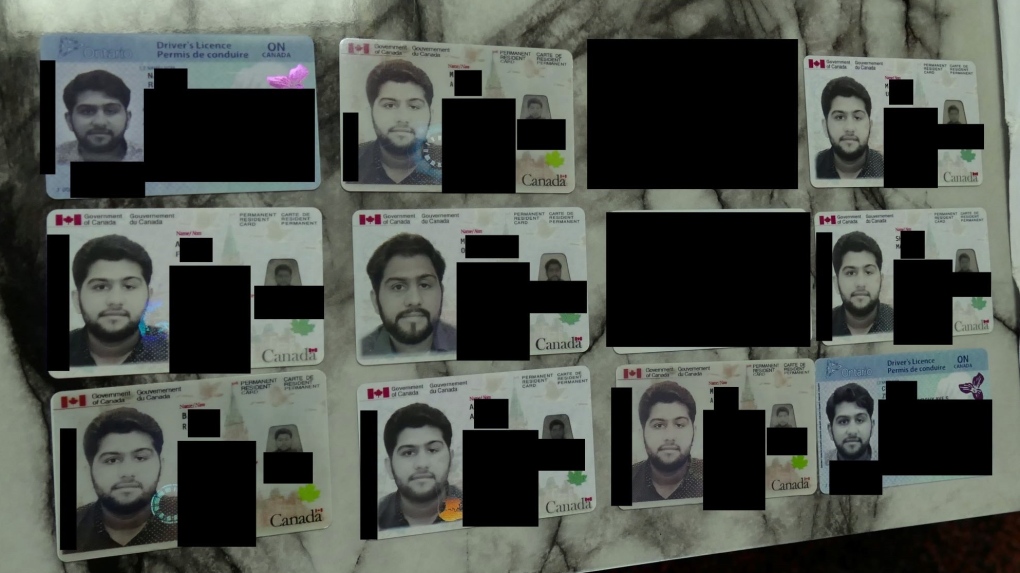Toronto police say 12 people are facing a combined 102 charges in connection with an investigation into a major credit fraud scheme.
The charges were announced Monday as police provided an update on Project Déjà Vu, a probe into what investigators described as “synthetic-identity fraud.”
Det. David Coffey, of the Financial Crimes Unit, said synthetic-identity fraud is a form of financial fraud in which fictional personal information is used to open accounts at financial institutions and other businesses.
He said police initiated the investigation in October 2022 after officers were contacted by a financial institution that located several synthetic accounts. Coffey said it is believed that most of those accounts were opened by a person who previously worked on behalf of the company.
“The perpetrators of this scheme, which began in 2016, are alleged to have created more than 680 unique synthetic identities, many of which were used to apply for and open hundreds of bank accounts and credit accounts at various banks and financial institutions across Ontario,” Coffey said.
“The fraudulently obtained credit accounts were then drawn upon by way of in-store and online purchases, cash withdrawals, or electric fund transfers.”
 Police have released a photo of what they say are synthetic-identity documents seized during a fraud investigation. (Toronto Police Service handout)
Police have released a photo of what they say are synthetic-identity documents seized during a fraud investigation. (Toronto Police Service handout)
He said in some cases, fraudulent payments were made to the accounts to allow the perpetrators to draw from them beyond their defined limits.
Coffey said police have so far confirmed about $4 million in losses.
Twenty search warrants were carried out as part of the investigation, he added.
“Through the search warrants, TPS has also located and seized several dozen synthetic identity documents and electronic templates to create false identifications and false documents,” Coffey said.
He noted that hundreds of debit and credit cards were also seized, along with about $300,000 in Canadian and foreign currency.
“This isn’t just about fraud,” Coffey told reporters. “Accounts obtained under synthetic identities are known to facilitate other serious criminal offences including the laundering of proceeds derived from human trafficking, drug trafficking, and armed robbery, among other serious crimes.”
He said while financial institutions have their own security procedures to prevent fraud, sometimes they are not always effective.
“All financial institutions have security parameters in place in order to minimize the damages to them. The fraudsters are really smart. They are advancing with technology. The identification is very convincing,” he added. “It often does get caught at the financial institutions but it doesn’t always get caught.”
He said he believes there are more suspects and victims that police have not yet identified and the investigation is ongoing.
“We assume there are more victims just because of the number of identities,” Coffey said. “We encourage any of them to reach out to us.”